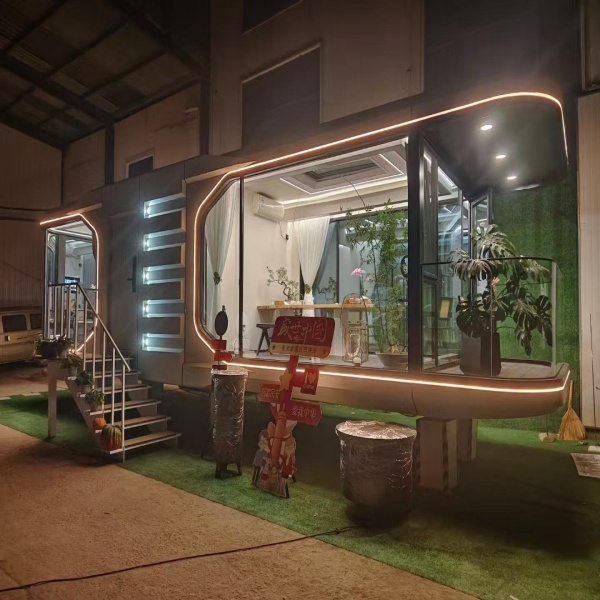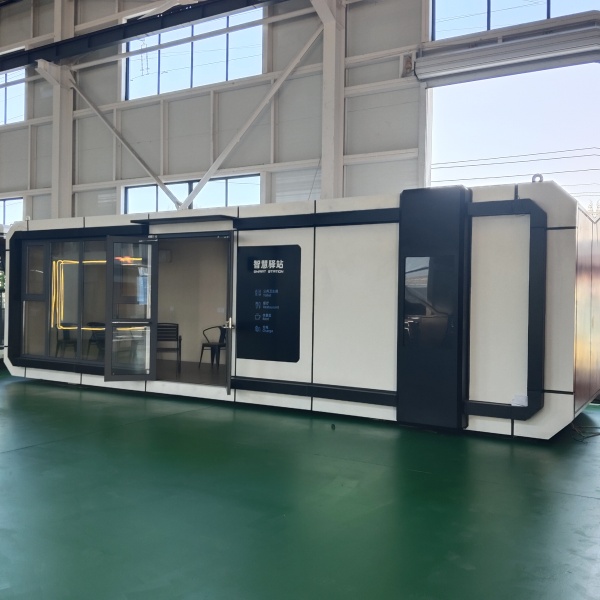-
E-mail
Austin120521@outlook.com -
E-mail
sales@jujiuhouse.com -
Telephone
+86-17864099991 -
Telephone
+86-17854044442
- Chinese
- French
- German
- Portuguese
- Spanish
- Russian
- Japanese
- Korean
- Arabic
- Irish
- Greek
- Turkish
- Italian
- Danish
- Romanian
- Indonesian
- Czech
- Afrikaans
- Swedish
- Polish
- Basque
- Catalan
- Esperanto
- Hindi
- Lao
- Albanian
- Amharic
- Armenian
- Azerbaijani
- Belarusian
- Bengali
- Bosnian
- Bulgarian
- Cebuano
- Chichewa
- Corsican
- Croatian
- Dutch
- Estonian
- Filipino
- Finnish
- Frisian
- Galician
- Georgian
- Gujarati
- Haitian
- Hausa
- Hawaiian
- Hebrew
- Hmong
- Hungarian
- Icelandic
- Igbo
- Javanese
- Kannada
- Kazakh
- Khmer
- Kurdish
- Kyrgyz
- Latin
- Latvian
- Lithuanian
- Luxembou..
- Macedonian
- Malagasy
- Malay
- Malayalam
- Maltese
- Maori
- Marathi
- Mongolian
- Burmese
- Nepali
- Norwegian
- Pashto
- Persian
- Punjabi
- Serbian
- Sesotho
- Sinhala
- Slovak
- Slovenian
- Somali
- Samoan
- Scots Gaelic
- Shona
- Sindhi
- Sundanese
- Swahili
- Tajik
- Tamil
- Telugu
- Thai
- Ukrainian
- Urdu
- Uzbek
- Vietnamese
- Welsh
- Xhosa
- Yiddish
- Yoruba
- Zulu
- Kinyarwanda
- Tatar
- Oriya
- Turkmen
- Uyghur

China folding container house usa
Exploring the Rise of China Folding Container Houses in the USA
The intersection of Chinese ingenuity in modular housing and the growing demand in the USA presents a dynamic landscape. Yet, navigating this space requires understanding more than just the basic concept of a folding container house. There's a nuanced discourse, driven by factors like cost efficiency, design, and practicality, that industry insiders are constantly evaluating. What often goes unnoticed is the sheer versatility these structures provide, as well as the skepticism that sometimes accompanies innovation.
The Allure of Folding Container Houses
The concept of a folding container house emerges as a game-changer for both residential and commercial purposes. They're not just metal boxes; they represent flexibility, mobility, and sustainability. One of the forefront companies leading this trend is SHANDONG JUJIU INTEGRATED HOUSING CO., LTD., known for their versatile approaches in integrated housing. Their products aren't limited to static installations; they can be quickly deployed and are incredibly customizable, appealing to a variety of needs.
However, while the allure lies in affordability and adaptability, many American consumers are left wondering about quality and longevity. This skepticism isn't unfounded. Initial deployments sometimes faced hurdles with insulation quality and regulatory compliance in diverse climates across the USA. The company's website, www.jujiuhouse.com, provides insights into these concerns, showcasing significant R&D efforts to meet international standards.
It's also crucial to note that these structures cater well to emerging tiny house movements and disaster relief scenarios, illustrating their expansive potential beyond traditional housing models. They're not just innovative solutions but potentially transformative ones.
Adapting to American Standards
Integrating these Chinese folding container houses into the American landscape wasn't without its challenges. Shandong Jujiu's initiative to blend local architectural preferences with robust engineering is a testament to their commitment. This balance aims to cater to aesthetic demands while maintaining structural integrity, especially under diverse weather conditions.
One real-world application that stands out involved adapting these units for temporary office spaces across construction sites. The feedback was largely positive, focusing on ease of assembly and spatial efficiency. But again, there's that constant question about whether these solutions can last long-term, prompting a deeper dive into materials and assembly processes offered by the provider.
The dialogue between Chinese manufacturers and American consumers continues to evolve, focusing on bridging gaps in expectations around customization and ease of use. With every success story, there's a lesson learned on how best to meet these diverse needs without compromising quality.
Case Studies and Real-World Feedback
One of the more illustrative examples comes from a project in California where Shandong Jujiu’s units served as emergency housing following severe wildfires. This deployment proved particularly effective due to the speed with which these houses could be assembled – a critical factor in disaster response scenarios.
Users noted the functional design and appreciated the eco-friendly aspects, like solar panel options and water recycling systems integrated into the units. Feedback loop mechanisms are essential here, adjusting future designs based on on-the-ground realities and consumer input.
Despite occasional concerns about initial set-up complexities and local zoning laws, the growing acceptance is evident. These instances provide a valuable narrative that confirms the potential of folding containers as viable housing solutions in emergency and standard residential contexts.
Navigating the Challenges
Attempting to standardize what inherently serves best as a customizable product line posed challenges for Shandong Jujiu. Their journey has been about more than manufacturing; it's a deep dive into understanding the American customer psyche, which values both independence and innovation in housing choices.
The story often told is one of trial and error. Various prototypes were tested before the right balance between quick assembly and durability was achieved. It’s this attention to feedback and the courage to iterate that sets successful firms apart in this industry.
As the American market continues to grow more receptive to alternative housing options, the role of companies like Shandong Jujiu in the evolving narrative becomes increasingly vital. Their experience highlights that success in this field leans heavily on understanding diverse cultural demands and delivering tailored solutions.
The Future Outlook of Container Homes
Looking forward, the potential for folding container houses in the USA is undeniably bright. Insights from industry insiders suggest that these structures will likely become mainstream, particularly as urban areas grapple with housing shortages and eco-conscious consumers seek sustainable alternatives.
Shandong Jujiu plans to invest further into R&D, pushing the boundaries of what these homes can offer. This includes exploring smart technologies that could integrate seamlessly with modern living, offering convenience and energy efficiency.
The growth trajectory appears promising, yet it’s also a call for continuous improvement and adaptation. As more users experience the benefits of folding container homes firsthand, the conversation will shift from novelty to necessity, with companies like Shandong Jujiu leading the charge.
Related products
Related products
Best selling products
Best selling products-
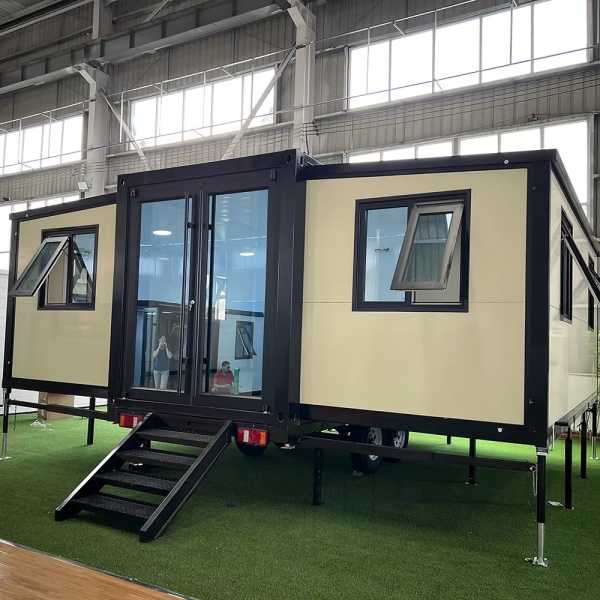 Stair Access Double Wing Expandable Container House | Easy Installation Mobile Office
Stair Access Double Wing Expandable Container House | Easy Installation Mobile Office -
 A container house with a terrace and double-wing folding design, suitable for various purposes such as offices, meeting rooms, living rooms, etc.
A container house with a terrace and double-wing folding design, suitable for various purposes such as offices, meeting rooms, living rooms, etc. -
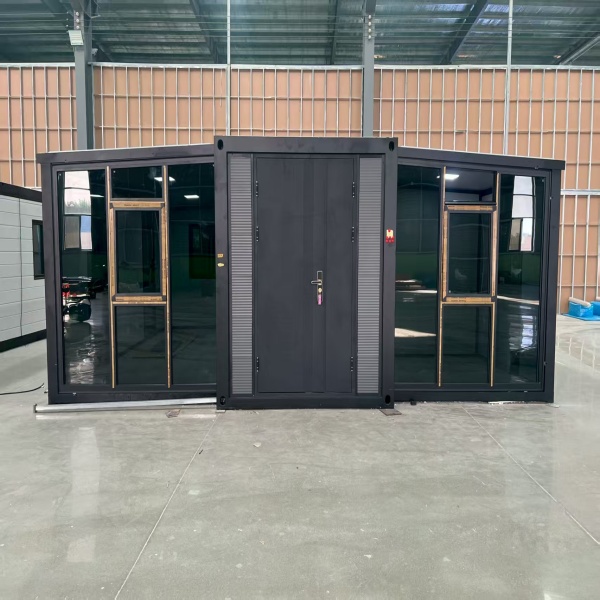 Customizable Office Mobile Home with Flat Roof and Double Wing Expansion Box, Convenient Container
Customizable Office Mobile Home with Flat Roof and Double Wing Expansion Box, Convenient Container -
 Luxury Foldable Two Story Container House for Glamping Resort and Villa Hotel
Luxury Foldable Two Story Container House for Glamping Resort and Villa Hotel -
 Waterproof folding container house – mobile accommodation for campsites/scenic spots
Waterproof folding container house – mobile accommodation for campsites/scenic spots -
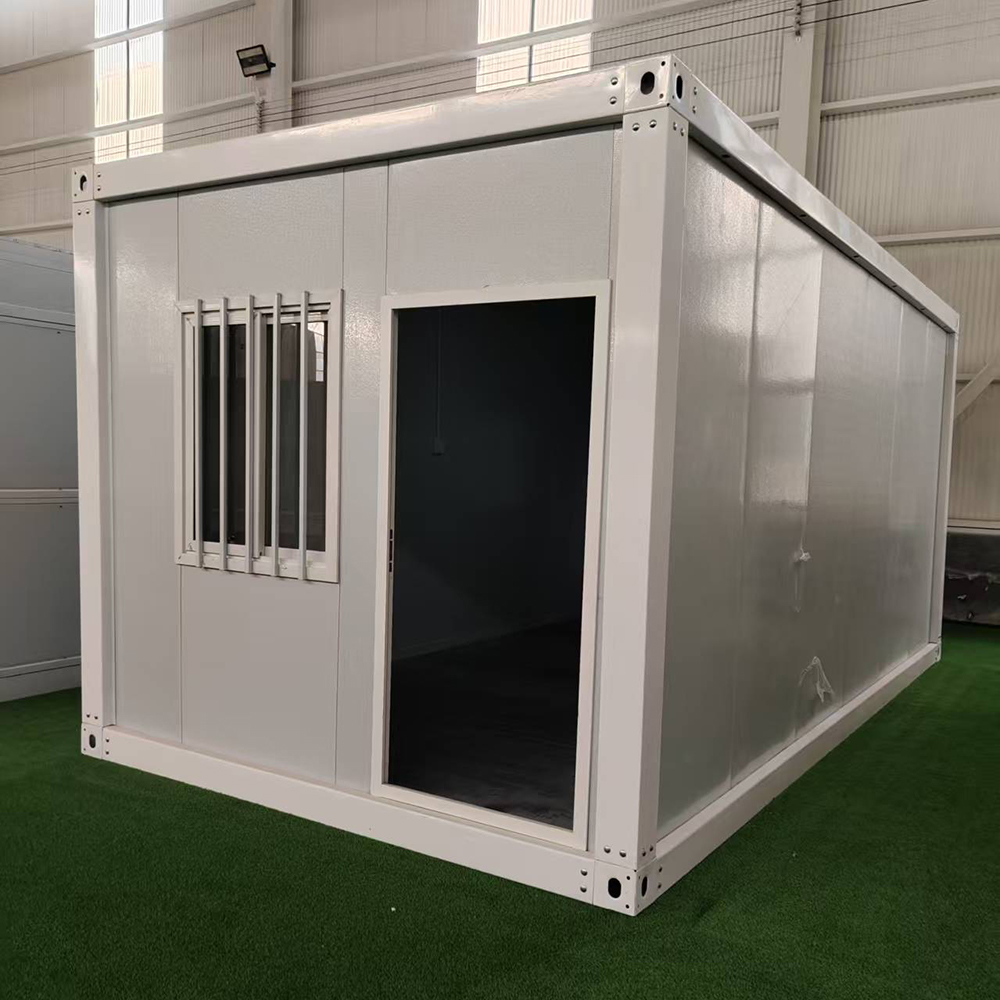 Folding Container Moving House Modular Office Container House Prefab Container for Outdoor Use
Folding Container Moving House Modular Office Container House Prefab Container for Outdoor Use -
 Reasonable Price 1 Bedroom Modular Container House Folding Container Home for Villa or Apartment Use
Reasonable Price 1 Bedroom Modular Container House Folding Container Home for Villa or Apartment Use -
 Hot-selling foldable container houses, expandable prefabricated houses, suitable for office or living use, with fast delivery.
Hot-selling foldable container houses, expandable prefabricated houses, suitable for office or living use, with fast delivery. -
 Customized Expandable Container House Holiday Home Folding Prefab Container House with Bathroom and Kitchen
Customized Expandable Container House Holiday Home Folding Prefab Container House with Bathroom and Kitchen -
 High-quality Double-wing Folding Container House with Doors and Windows, Insulated Walls, Suitable for Various Scenarios.
High-quality Double-wing Folding Container House with Doors and Windows, Insulated Walls, Suitable for Various Scenarios. -
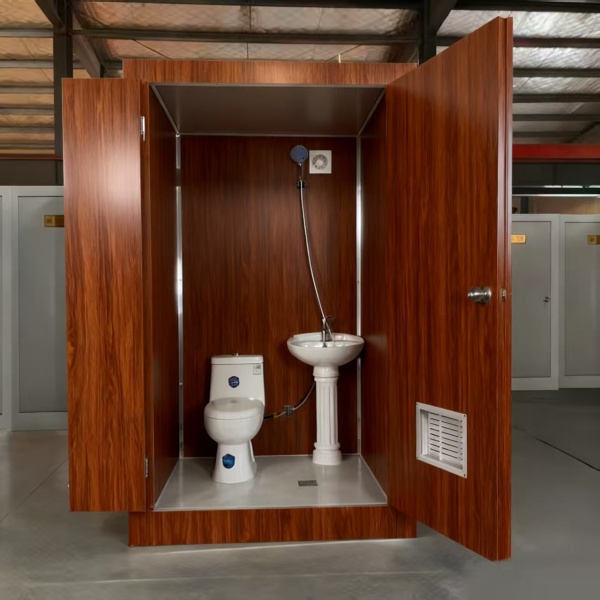 Portable outdoor camping bathroom, mobile toilet, prefabricated modular villa & rental of outdoor and indoor showers
Portable outdoor camping bathroom, mobile toilet, prefabricated modular villa & rental of outdoor and indoor showers -
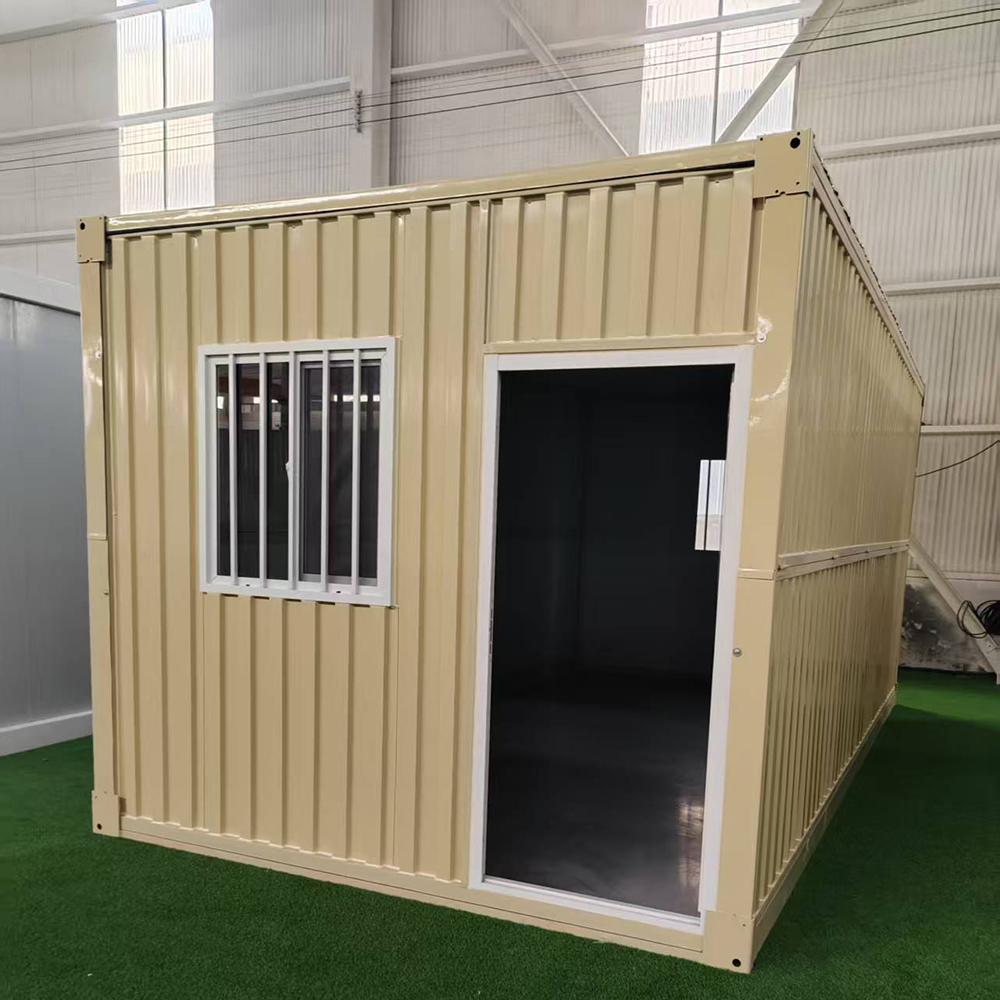 Competitive Price Portable Container House Foldable Container Mobile Living Modular Homes
Competitive Price Portable Container House Foldable Container Mobile Living Modular Homes
Related search
Related search- Buy fold out container homes price
- China portable fold out houses
- house that folds out
- Buy cheap wholesale price expandable house container
- prefabricated containers house 20ft
- Buy prefabricated house container
- folding houses
- portable folding houses for sale
- Buy luxury modern space capsule
- Buy expandable container house with ensuite










